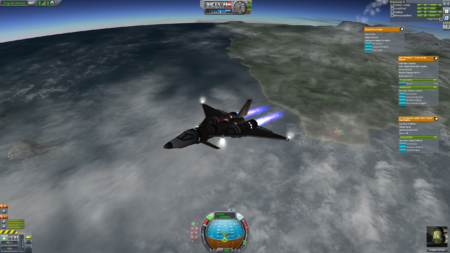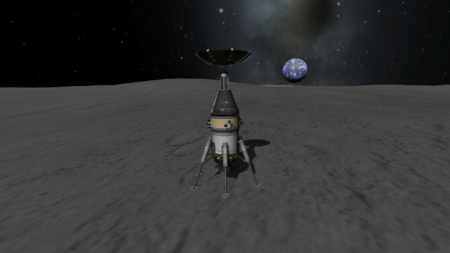Category: Daily updates
Generally musings of the day, usually accompanied by a photograph
Data collection and writing up
My central aim for this summer was to focus on developing my PhD research project. To that end I didn’t seek a teaching assistant position or other paid work, like commercial photography or the time I helped run the Summer Residence Program at Massey College.
Mostly that has gone well. I’ve gone from seeking ethical approval to beginning to conduct interviews with people at a variety of schools. I’m putting together a detailed timeline of events that took place in each Canadian campaign, based in part on the idea of cycles of contention from the theoretical framework behind the project. I have started writing the first three chapters — on the issue context, literature context, and activist repertoires — and I have a lot of ideas for each.
For the fall and winter terms I have accepted three TA positions. One is yet another second year Canadian politics course, with tutorials to lead and grading. The other two are grading only (though I will be giving a lecture in one) within the School of the Environment. TA work will be a distraction from the dissertation, but it can also be useful for structuring time and will help with maintaining general financial stability.
I expect that in September it will become much easier to contact research subjects efficiently, as students, faculty, and administrators awake from their summer comas. We’re looking for a new third floor housemate as well, since the current occupant of our largest room is leaving to pursue a job opportunity selling supplements.
Appreciation for die-hard readers
The whole medium of blogs seems to have largely died, certainly when compared with the heyday of dozens of my friends having LiveJournal- or Blogger-hosted sites. This page has also lost some of its drama since the Oxford and even the Ottawa days ended. The late years of a PhD tend to be a time of loneliness and isolation. Many of your day-to-day obligations like coursework have fallen away and you’re meant to be devoting yourself to a project that almost by definition has appeal to only a narrow range of people.
It’s not terribly clear who, if anyone, is still reading this site, as comments seem to have gone out of favour as well.
If anyone’s still around other than the long-reading family members who I know about, you have my thanks and another invitation to comment. Anonymous commenting is recommended for those who prefer it.
Taras Shevchenko
Ramjets and aerospikes
Kerbinrise
Moleskine
A lot of people make fun of Moleskine products as overpriced and pretentious. I can’t really speak meaningfully about their aesthetics, but having used Moleskine calendars from as long as 11 years ago as records I can commend them on the stability of their paper (in terms of colour, warping, etc) and the resilience of their general construction.
I just wish I could normally remember whether the word as an ‘e’ on the end without having to check.
Recent productivity
Lately I have been getting a lot of writing done.
I have a few thousands words each in my first three thesis chapters, providing context on campus fossil fuel divestment, going through the relevant literature, and discussing the repertoires from which activists draw their tactics.
A non-academic book project is also developing, with almost 23,000 unedited words down.
I haven’t been working much on my space shuttle screenplay, which is probably a good sign. In some ways it’s my non-urgent unrelated fallback project for when everything else is going badly.
June already!
A great deal has changed in my life since this site got broken in February.
Back then I was dealing with work as a teaching assistant for two courses, as well as a great many difficult personal issues and situations.
Now I am in the luxurious position of having the summer to work on my dissertation. In a pretty clear way, it’s actually the income-maximizing option when compared with trying to get one of U of T’s few summer TA jobs, trying to find some other work, or trying to do a lot of photography gigs. The biggest expense in a PhD is the forgone income from not working somewhere that would pay much more, and that semi-hidden cost accumulates the longer the program takes. Remaining a federal civil servant was psychologically impossible for me, given the pain of working on something I cared intensely about while only being allowed to implement policies that would completely fail to solve the problem (people working for Trudeau today don’t seem appreciably better off than I was when working for the Harper government). Still, there are plenty of jobs where in the last six years I could have earned several times my income from university funding and TA work, without paying tuition expenses. Furthermore, the work experience and career progression that would likely have involved is worth more to almost all plausible employers than the research skill development and demonstration from a doctoral program.
For those aspiring to academic jobs, there is probably also a degree to which the longer your PhD takes the less confidence potential employers may have that you will produce the prodigious research output which is the primary obligation of young professors. It’s a high bar, but a PhD is really still an apprenticeship: becoming a qualified academic researcher via a single relatively closely supervised project. All kinds of life and financial circumstances can stretch out that process, but given the incredibly competitive nature of the academic job market, you had better be making a lot of important connections, winning grants and scholarships, and publishing in journals important to your field while that is going on.
I don’t regret the time I have spent in the PhD at all because for me another five or six or seven years in university is a boon that could scarcely be hoped for. The University of British Columbia was the first place where I really felt I belonged in life and, despite all the frustrations and setbacks, the essence of that feeling persists for me here. When people ask about the wisdom of doing a PhD, I advise that they consider whether the experience of being in university is something they so greatly value that they are willing to sacrifice substantial lifetime earnings and financial security to get it. If the PhD is worth it to you in itself it may be a good choice. For most people, it’s not worth it only as a stepping stone to somewhere else, both because you are unlikely to ever get that tenure-track teaching job and (like practicing law) there’s a pretty strong chance you will hate it even if you end up there at the top of the academic pyramid scheme.
Despite the intention to focus on reading, research, and writing for my PhD, I am sticking with my long-term strategy of keeping multiple things on the go at once. For me, I think it actually leads to higher productivity because the specialized forms of exhaustion that can arise from pushing too long and hard on one task can be dissipated and managed by having other simultaneous projects. Equally importantly, a diversified set of tasks and obligations reduces the odds that everything will go wrong at once. And so I am working on some personal writing projects, doing some volunteering for the Ontario election and climate activism, trying to at least keep walking as exercise, and generally remaining open to opportunities as they arise.
Reading week
All holidays have limited importance for graduate students. Or, rather, holidays are the best opportunity to work on the independent research which is meant to be the reason for being in grad school, as teaching and other duties tend to somewhat abate.
An ambitious aim would be to complete all the parts of the survey for my PhD thesis which can be done using open source information, since I am still working on Research Ethics Board approval to begin talking to people.




